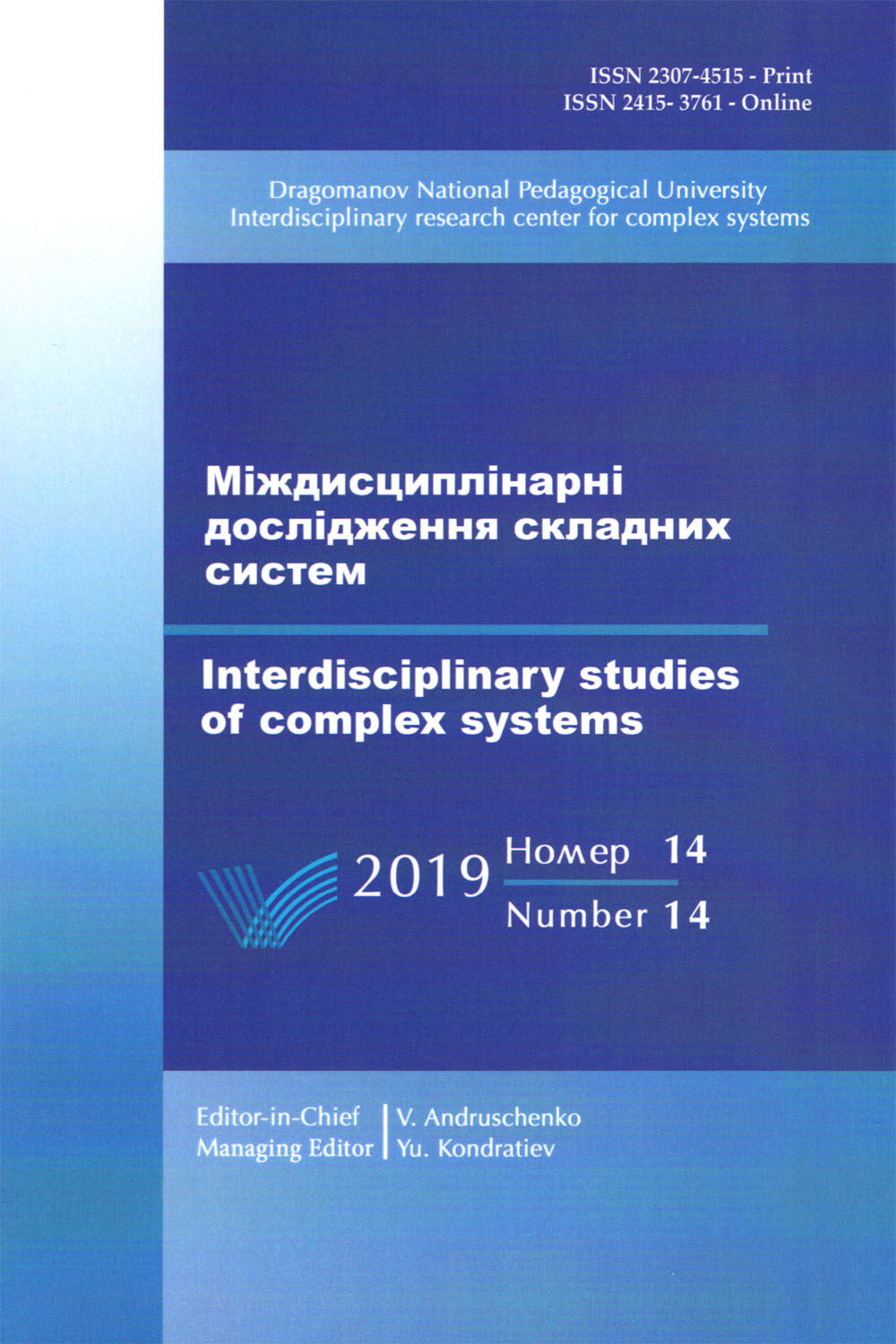Interpretive subjectivity and gender relativism in the theories of postmodernism
DOI:
https://doi.org/10.31392/iscs.2019.14.099Ключові слова:
narrative, changeability, feminism, concept, translation, construct.Анотація
Interpretation as a stream of our consciousness is determined by different contexts and various narratives which stimulate this process reacting to the changeability of the world and human beings in it. The postmodern theory while losing its topicality keeps the key principle of interpretation firm and stable. Interpretation is simultaneously open and fixed, though the process of constructing narratives is not. As interpretation provides vast space for gender, the feminist theory proceeds with the «new feminist reading», and the aim of the feminist criticism lies in revealing misogynism and masculine approaches to different discourses and narratives. Still in postmodernism feminist interpretation often rejects «comprehension» in its classical meaning denying analogy, symmetry and equivalence. The subjectivity of feminist interpretation is not a transparent line between the human being and the surrounding world: the «better» is interpretation, the more «objective» seem our narratives, the stronger appear constructs stipulated by culture, gender, ideology.
Посилання
Barthes Roland, Mythologies (Straus and Giroux, Farrar, 1972), 160.
Barthes Roland, A Barthes Reader (Hill and Wang, 1983), 534.
Barthes Roland, Writing degree zero (Academic Project, 2008), 431.
Caputo John D., Truth. Philosophy in Transit (Penguin Press, 2013), 284.
Caputo John D., Hoping against Hope (Fortress Press, 2015), 226 p.
Derrida Jacques, 2007. Positions (Academic Project, 2007), 160.
Eco Umberto, The Search for the Perfect Language (The Making of Europe (Alexandria, 2009) 423.
Eco Umberto, Interpretation and Overinterpretation (Cambridge University Press, 1992), 164.
Girenock Fedor, The pleasure of the different thinking (Academic Project, 2010), 235.
Renate Hof, «The emergence and development of gender studies» in Gender. Gender Culture: German and Russian Studies (2009): 31—60.
Iser Wolfgang, The Range of Interpretation (Columbia University Press, 2001), 280.
Annette Kolodny, «A map for rereading: Or, Gender and Interpretation of Literary Texts». New Literary History 11, no. 3 (1986): 451-467.
Lorber Judith, Gender Equality: Feminist Theories and Politics (Oxford University Press, 2011), 354.
Juliet Mitchell, «The holy family family» in Psychoanalysis and Feminism (Flinta, 2004), 156-191.
James Miller, «The pattern of the carpet». Contemporary literary theory (2004): 92-109.
Ricoeur Paul, The conflict of Interpretations Essays in Hermeneutics (Academic Project, 2008), 695.
Rorty Richard, Consequences of Pragmatism (University of Minnesota Press, 1982), 237.
Smith Paul Jordan, The soul of Woman: An interpretation of the Philosophy of Feminism (Forgotten Books, 2017), 84.
Vlasova Tatiana, Grabovska Iryna and Galitska Julia. Topical Gender: International and Ukrainian contexts (Millenium, 2018), 135.
Zizek Slavoj, Like a Thief in Broad Daylight. Power in the Era of Posthumanity (Allen Lane, 2018), 240 p.
Zizek Slavoj, Trouble in Paradise: From the End of History in the End of Capitalism (Penguin Books, 2015), 208.
##submission.downloads##
Опубліковано
Номер
Розділ
Ліцензія
Автори, які публікуються у цьому журналі, погоджуються з наступними умовами:- Автори залишають за собою право на авторство своєї роботи та передають журналу право першої публікації цієї роботи на умовах ліцензії Creative Commons Attribution License, котра дозволяє іншим особам вільно розповсюджувати опубліковану роботу з обов'язковим посиланням на авторів оригінальної роботи та першу публікацію роботи у цьому журналі.
- Автори мають право укладати самостійні додаткові угоди щодо неексклюзивного розповсюдження роботи у тому вигляді, в якому вона була опублікована цим журналом (наприклад, розміщувати роботу в електронному сховищі установи або публікувати у складі монографії), за умови збереження посилання на першу публікацію роботи у цьому журналі.
- Політика журналу дозволяє і заохочує розміщення авторами в мережі Інтернет (наприклад, у сховищах установ або на особистих веб-сайтах) рукопису роботи, як до подання цього рукопису до редакції, так і під час його редакційного опрацювання, оскільки це сприяє виникненню продуктивної наукової дискусії та позитивно позначається на оперативності та динаміці цитування опублікованої роботи (див. The Effect of Open Access).











